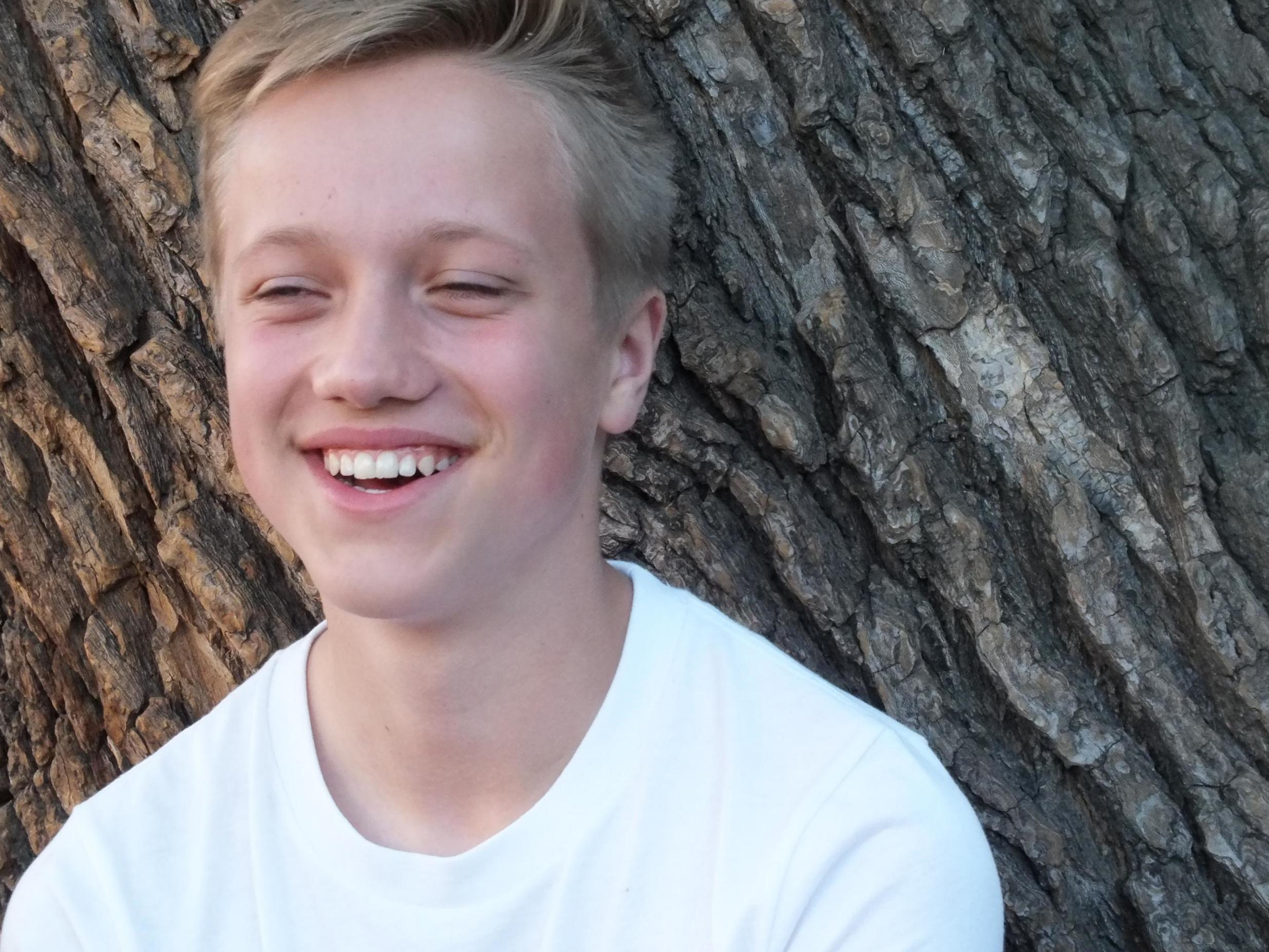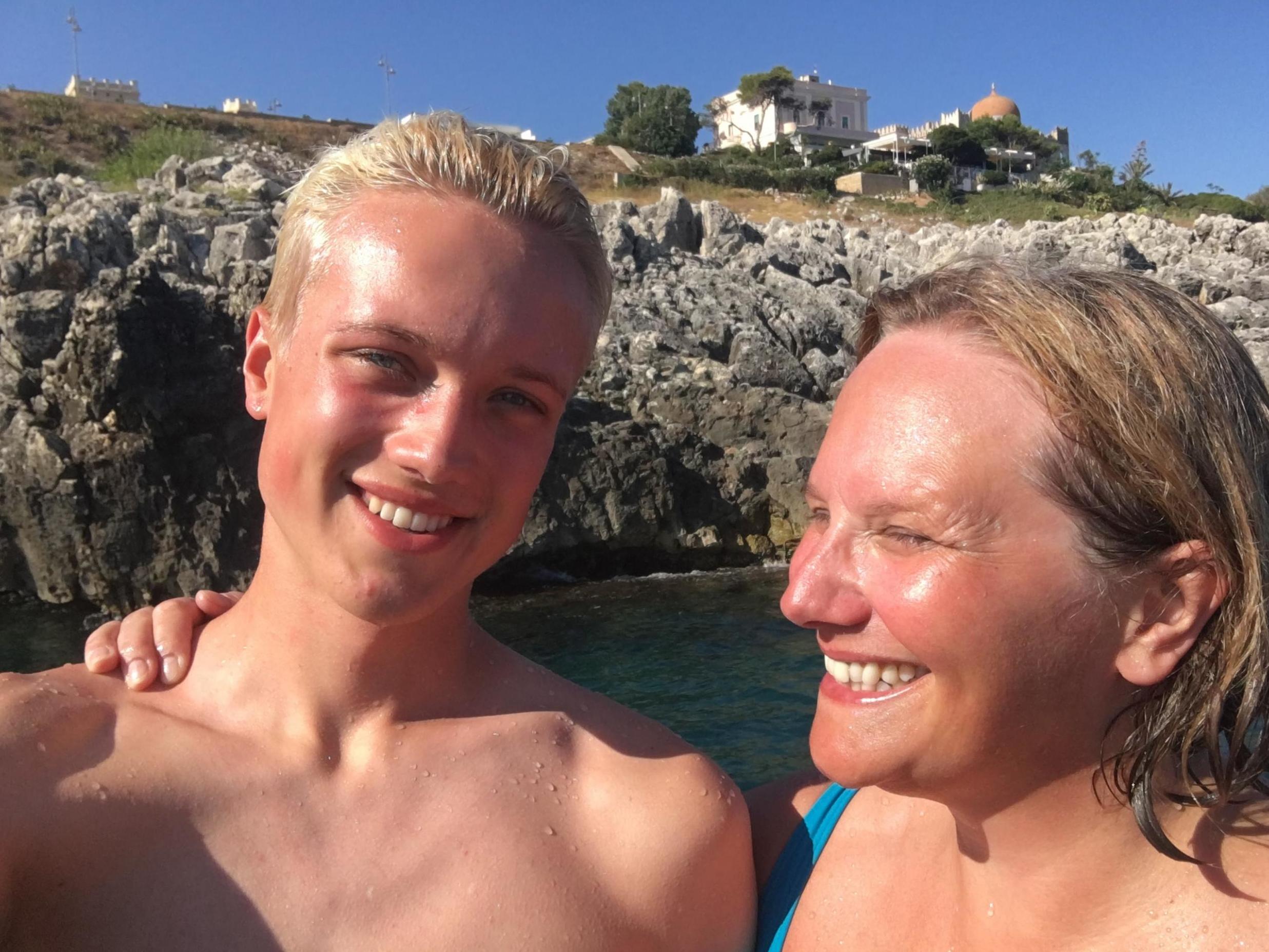Parents need training to spot signs children are suicidal, says mother after 17-year-old son took own life
‘I was naive to think that love was enough’

Your support helps us to tell the story
From reproductive rights to climate change to Big Tech, The Independent is on the ground when the story is developing. Whether it's investigating the financials of Elon Musk's pro-Trump PAC or producing our latest documentary, 'The A Word', which shines a light on the American women fighting for reproductive rights, we know how important it is to parse out the facts from the messaging.
At such a critical moment in US history, we need reporters on the ground. Your donation allows us to keep sending journalists to speak to both sides of the story.
The Independent is trusted by Americans across the entire political spectrum. And unlike many other quality news outlets, we choose not to lock Americans out of our reporting and analysis with paywalls. We believe quality journalism should be available to everyone, paid for by those who can afford it.
Your support makes all the difference.When Dom came out as gay at 14, he and the many people who loved him were filled with pride. Then the bullying began.
He was pushed against walls in corridors, called a “faggot” and had insults hurled at him in class.
He moved schools. New classmates and surroundings at a local grammar appeared to given him a fresh start.
Three years later, a bright and popular sixth-former, he was on the cusp of making his dreams come true by going to university.
Unbeknown to his loving family, however, his torment had continued. He told a counsellor of an incident in which pictures of him at a party were published on social media without his consent, describing it as “like being raped”.

By then he had learned to suppress any external symptoms of his social anxiety so effectively even those closest to him were unable to detect the signs.
“We had such a happy summer together,” recalled his mother, Pat Sowa.
Then, in October 2017, he reached a point beyond which he could not go. The unimaginable happened. Dom took his own life.
And it was only then his family realised the depths of despair to which he had sunk – and the opportunities to recognise it, and reach out to him, that were now forever beyond their grasp.
“He was comfortable with us and his friends so we didn’t see his underlying sadness,” Ms Sowa said.
“With Dom, he was withdrawn, he had become quieter than normal. I would say ‘I am really worried about you’, but it was fudged language, not on purpose but because it’s such a frightening thing.
“I was naive to think that love was enough.”
Following the tragedy, Pat left her job as a headteacher in Yorkshire to set up Starfish, an organisation that campaigns for mental health first aid and suicide prevention training.
She is determined to give other parents what she never had – the knowledge and awareness to spot the signs that a young person is contemplating taking their own life.
They can range from the use of language like ‘I can’t take it any more’, to a loss of interest in appearance, and – particularly for those in the LGBT+ community – expressions of feeling alone.
“The single most important thing you can do as a parent is to ask, ‘You seem really, really low, are you thinking of taking your life?’ You have to be direct,” Ms Sowa said.
Claire Donning, suicide prevention advisor at national charity Papyrus, agrees.
“You cannot put the idea into someone’s head but by asking, you have communicated that you are a safe person to talk to,” she said.
“It’s absolutely heartbreaking that no one told me that beforehand with Dom. We’re parents that are asked to keep our child safe without the necessary skills.”
Earlier this month, Ms Sowa told hundreds of headteachers at the Association of School and College Leaders annual conference in Birmingham that schools need more support.
She suggested that 11-year-olds starting at secondary school should be given the phone number for Papyrus as part of their induction assemblies to ensure they know where to find help.
She added that schools need to prioritise mental health support as much as academic achievement. “Exam results count for nothing if they are not there to collect them,” she told school leaders.
If all schools recognised how much subtle gestures can mean for the most vulnerable LGBT+ young people then lives could be saved, she believes.
“One of the things that Dom said to me was ‘I knew that they didn’t approve of me, mum, because there were no posters in school’.”
She is certain Dom would not have felt so isolated if the school had simply said, “Thanks so much for telling us”, when he came out as gay.
Her comments came as five schools in Birmingham suspended LGBT+ lessons, which were originally set up to tackle homophobic bullying, after protests from parents.
New regulations to make RSE compulsory in English schools from September 2020 have just been voted through parliament by an overwhelming majority.
Ms Sowa is an advocate for such education, believing such classes could have made her son “feel safe” within his sexuality.
“We have children in our classrooms who have same-sex parents and they’re growing up in a world where they feel ‘othered’ from the very beginning,” she said.
For other parents who have lost a child through mental health issues, Ms Sowa said: “I want to say that however bad you feel, it’s not your fault. Remember there is help and it’s vital to get it.”
Samaritans is available 24/7 every single day of the year to listen and offer support to anyone who is struggling to cope. People can contact Samaritans by phone, free of charge, on: 116123, via email: jo@samaritans.org, or visit samaritans.org to find details of their local branch. Papyrus can be contacted on 0800 068 41 41 or 07786 209 697
Join our commenting forum
Join thought-provoking conversations, follow other Independent readers and see their replies
0Comments